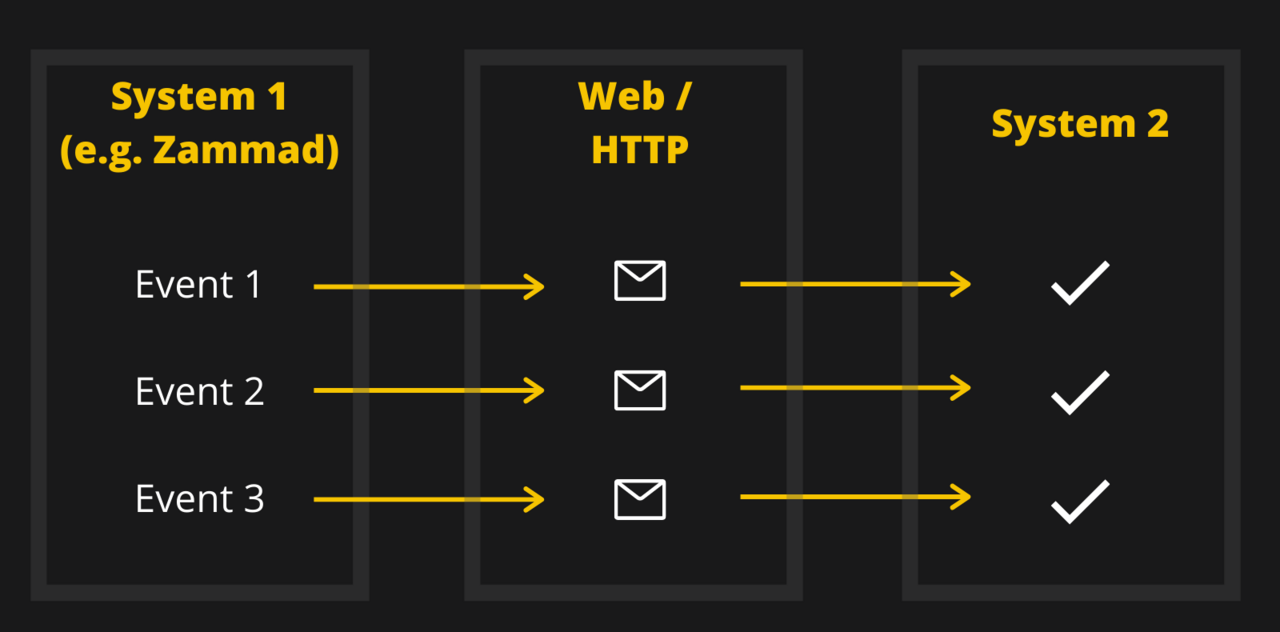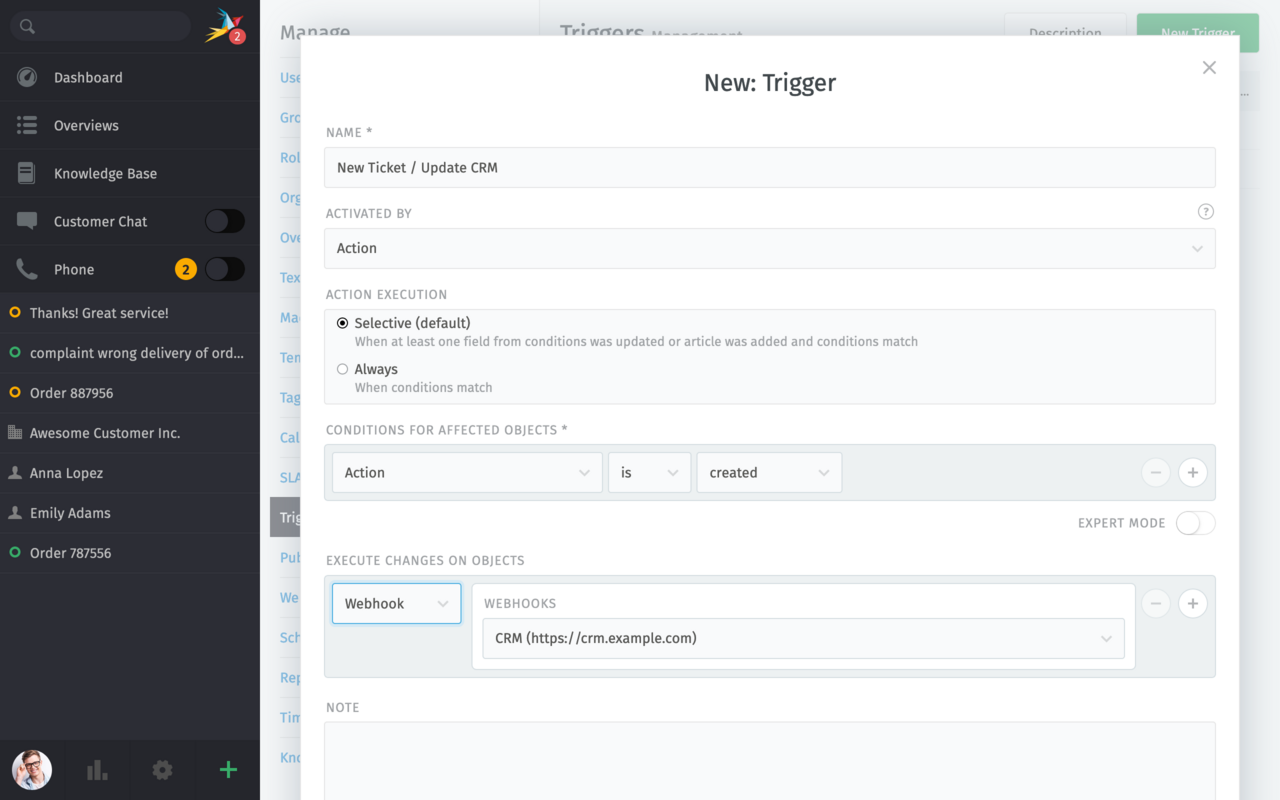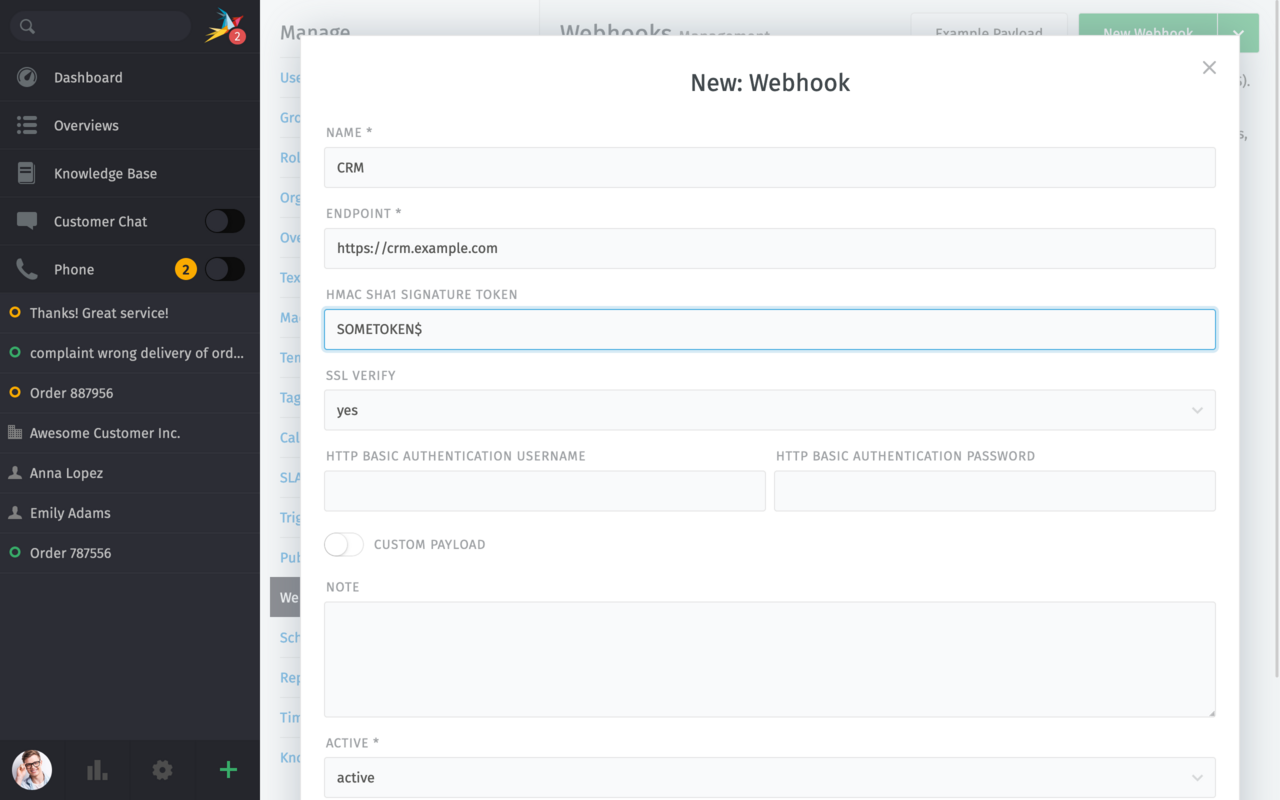
What happens if you want to inform a third-party system about some new information in Zammad? No problem: our webhooks allow you to do that! Webhooks are an easy and safe way to exchange data from Zammad with an external system.
What are webhooks?
In a nutshell, they are an easy way for systems to communicate with each other and allow you to send real-time data to any other application.
Broken down, the process looks like this:

Webhooks have been available in Zammad since version 3.6. With the introduction of version 6.0, freely customizable and predefined Webhooks have also been added, providing the user with additional flexibility and options. With this enhancement, you have the flexibility to define your own payload and assign specific ticket values to it.
Further beneficial feature for Microsoft Teams users: Zammad now offers a new predefined Webhook specifically designed for Microsoft Teams notifications. In addition to our existing integrations with Slack, Mattermost, RocketChat, and other platforms, this new predefined Webhook for Microsoft Teams allows for seamless communication and real-time notifications within your Microsoft Teams environment.
Use case
The following use cases illustrate the function of webhooks.
Use case (Microsoft Teams, Slack, RocketChat and other platforms)
With the predefined webhooks for Microsoft Teams, Slack or RocketChat, seamless communication and real-time notifications are enabled within your communication environment.
Use case (Customer Relationship Management/CRM)
For example, if you want to synchronize ticket information from the customer support into your CRM (so that your sales staff also has an overview of open support cases in your customer support), it can be done through webhooks (if your CRM supports this).
Here's how it works
- Create a trigger in the admin interface with a destination URL and a signature token (optional)
- Configure a trigger that defines when it should start
- The target server has now received all ticket, article, group, and user data in JSON format
- The integrity of the data can be verified with an HMAC signature in the header

In more detail
Under the hood, Zammad sends a POST request to a third-party URL (“API endpoint”) you specify in the New Webhook dialog and select it in the New Trigger dialog. The application server behind this URL/endpoint must be configured to receive messages from Zammad and handle the attached data accordingly.

Webhook requests from Zammad contain the following JSON data about new/incoming tickets:
- ticket attributes/metadata
- all associated articles
- associated users (e.g., article senders, owners, etc.)
- associated user roles
- associated user organizations (if applicable)
- associated groups
You can find more information in our Admin documentation.
This feature is based on a contribution by our community member DukeX! 💛